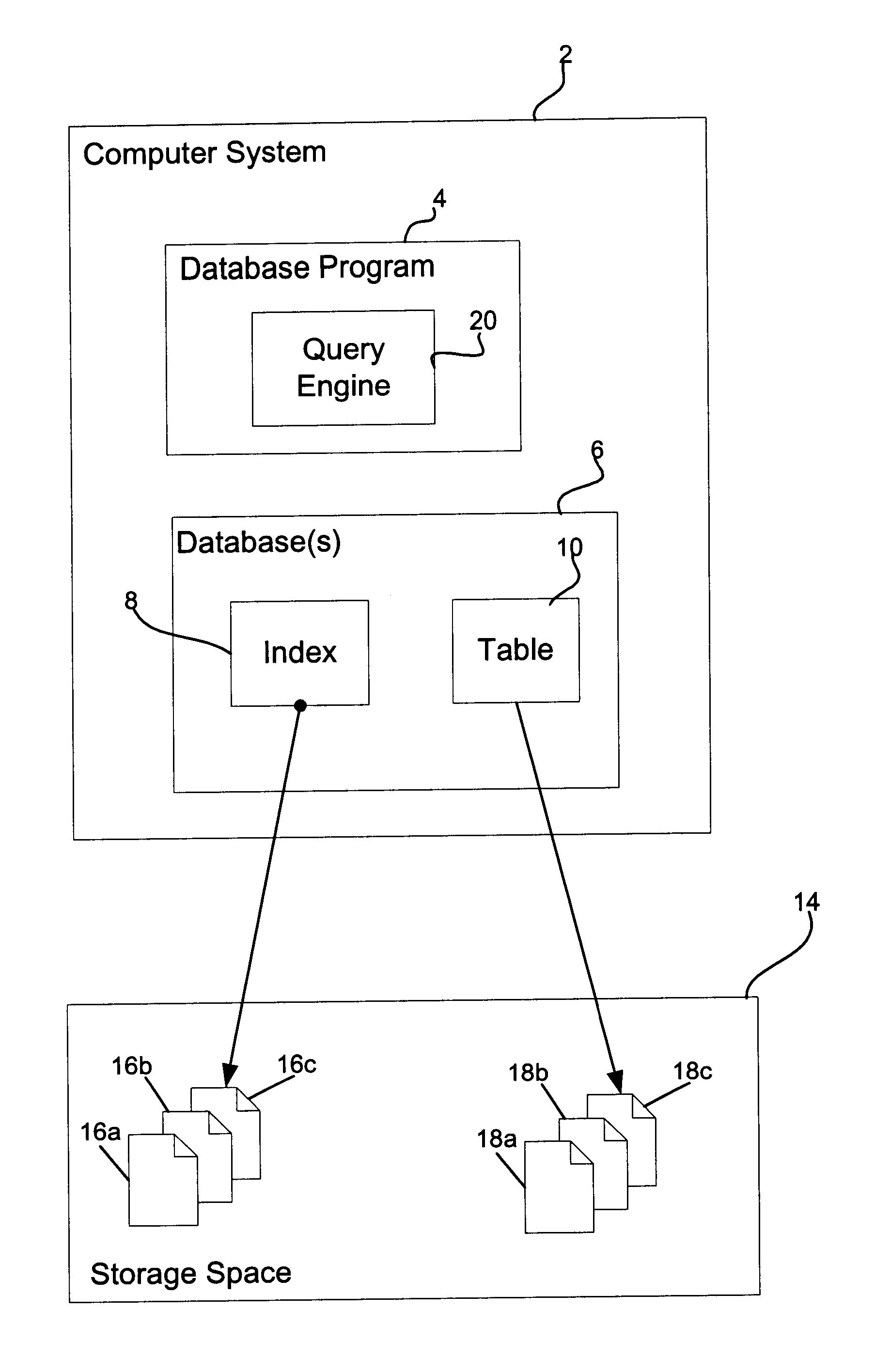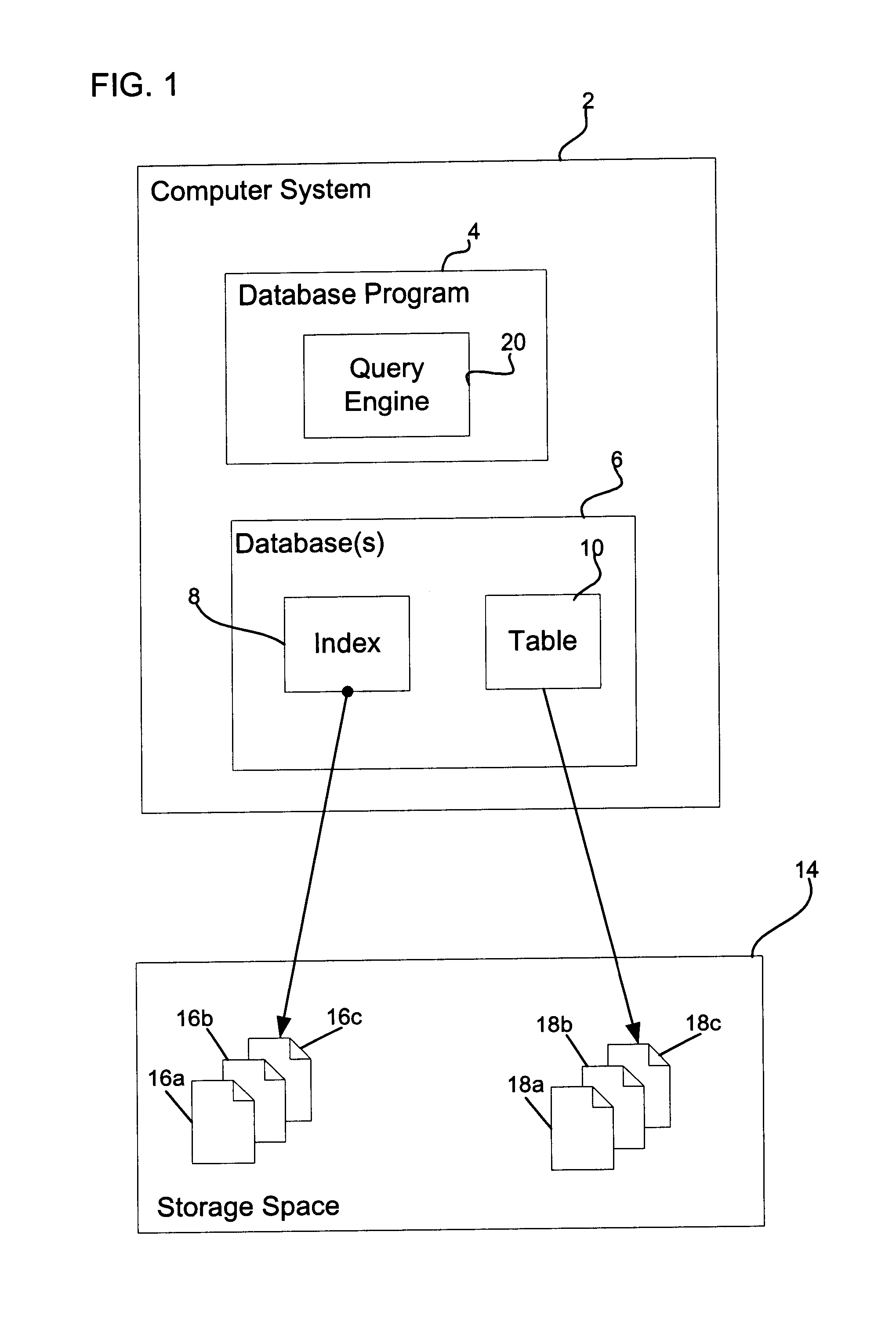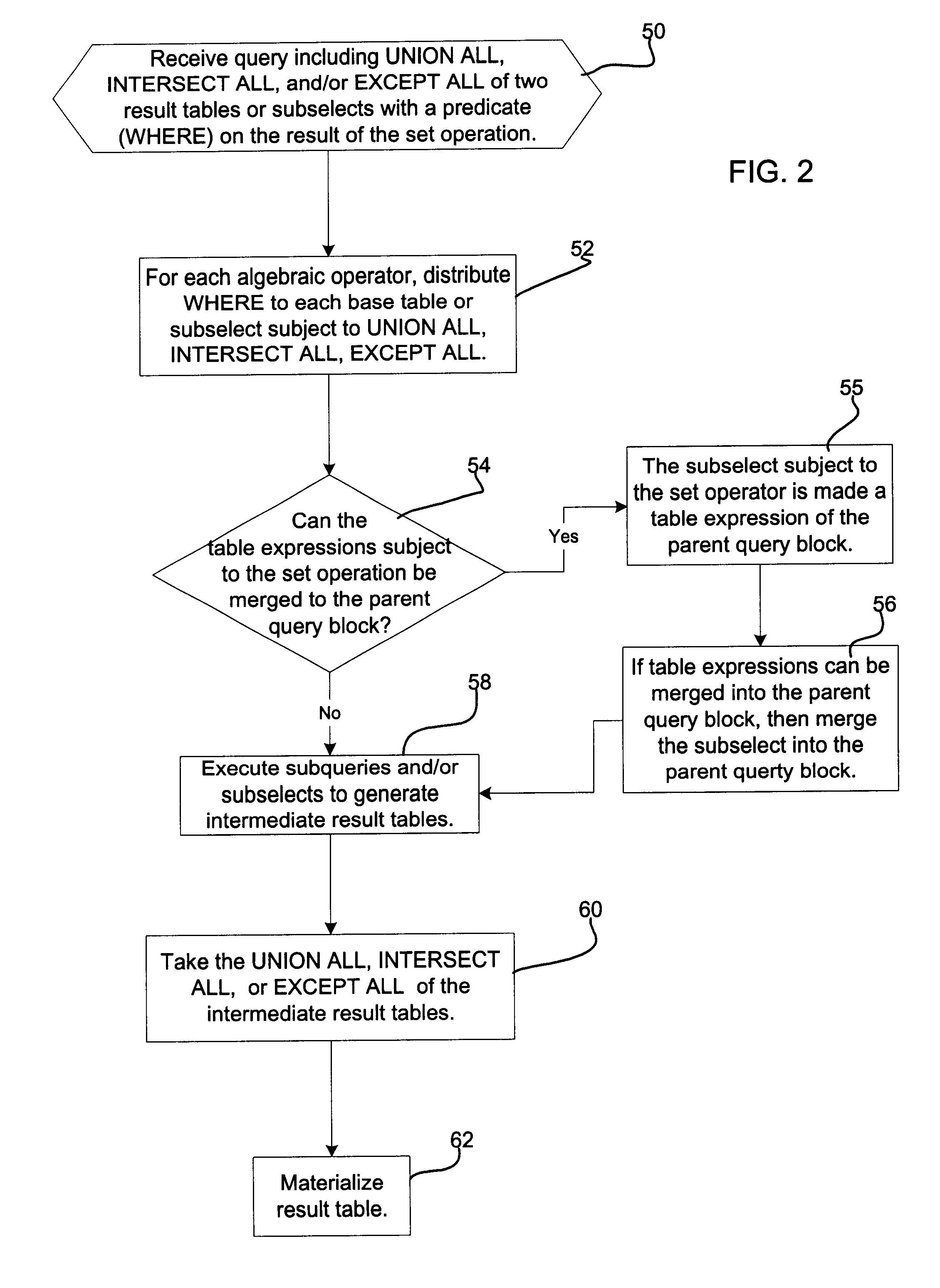Method, system, and program for optimizing the processing of queries involving set operators
a set operator and program technology, applied in the field of method, system and program for processing queries involving set operations, can solve the problems of unnecessary search of actual tables, adversely affecting query performance, and significant overhead of disk input/output operations
- Summary
- Abstract
- Description
- Claims
- Application Information
AI Technical Summary
Benefits of technology
Problems solved by technology
Method used
Image
Examples
Embodiment Construction
Provided is a method, system, and program for processing a query including a query operation on a table derived from a set operation on two input tables. The query operation is performed on each input table separately to produce two intermediate result tables. The set operator is then applied to the two intermediate result tables to produce a final result table that is a same result table that would have been produced by performing the query operation on the table derived from the set operation performed on the two input tables.
In further implementation, the final result table is generated without having to materialize in a storage device any intermediate result tables.
Still further, the input tables may comprise base tables having indexes, and wherein the indexes on the two base tables may be used to perform the query operation on each input table separately.
In certain implementation, the set operation comprises one of a UNION ALL, EXCEPT ALL or INTERSECT ALL operation. In such cas...
PUM
 Login to View More
Login to View More Abstract
Description
Claims
Application Information
 Login to View More
Login to View More - R&D
- Intellectual Property
- Life Sciences
- Materials
- Tech Scout
- Unparalleled Data Quality
- Higher Quality Content
- 60% Fewer Hallucinations
Browse by: Latest US Patents, China's latest patents, Technical Efficacy Thesaurus, Application Domain, Technology Topic, Popular Technical Reports.
© 2025 PatSnap. All rights reserved.Legal|Privacy policy|Modern Slavery Act Transparency Statement|Sitemap|About US| Contact US: help@patsnap.com



